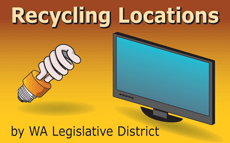EPR, product design, and the circular economy
A report by a British think tank urged the introduction of extended producer responsibility (EPR) as the key to boosting recycling in England. Materials Recycling World wrote about the report that "producers should take responsibility for most of the cost of collections because they have the greatest ability to influence product design," suggesting that "producers that design less wasteful packaging, use recycled materials and encourage customers to recycle" be rewarded and "companies failing to do this would pay more."
In Design Engineering, Electronic Products Stewardship Canada said that reducing recycling costs "begins with designers... and design principles that make it easier to dismantle end-of-life" products.
Resource Recycling covered a recent Product Stewardship Institute webinar (PDF) where Unilever Canada said that "for an EPR program to be successful, it should be implemented on a regional scale as opposed to the state or municipal level." In EPR systems, "the companies that manufacture products and packaging are held responsible for financing and managing end-of-life concerns for those goods."
A recent policy paper by Zero Waste Europe outlined "the main challenges of current EPR schemes and the solutions to make EPR a key tool for the circular economy." The policy paper asserted that "EPR, if used well, can be one of the cornerstones of the transition towards a circular economy. It is a tool that has the potential to provide economic incentives for producers to better design their products, while better implementing the polluter pays principle and penalizing non-circular products."
Circular economy investors Closed Loop Partners wrote in GreenBiz why "2017 will be the year of the circular economy", writing that "recycling is the feedstock of U.S. manufacturing growth."
